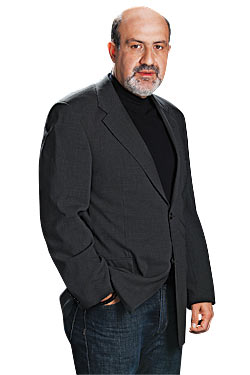Shared by JohnH
HatTip to Dave Lull!
 |
|
(Photo: Andreas Rentz/Getty Images)
|
Halfway into our conversation, Nassim Taleb’s gray-bearded Levantine face tightens. “If I talk about finance, it corrupts my whole day,” he protests. “Don’t corrupt my day.”
We’ve strayed from a topic Taleb is eager to discuss to one he is anxious to flee. We are here in this French café in Morningside Heights to talk about Socrates, Seneca, Averroës, Pascal, La Rochefoucauld, Chamfort, Nietzsche, Wittgenstein. These are his forebears in the art of the aphorism, a form he took up for several months earlier this year, resulting in his new book, The Bed of Procrustes, a compendium of Talebian witticisms and skeptical philosophizing: “You are rich if and only if money you refuse tastes better than money you accept.” “Education makes the wise slightly wiser, but it makes the fool vastly more dangerous.” “You are only secure if you can lose your fortune without the additional insult of having to become humble.”

